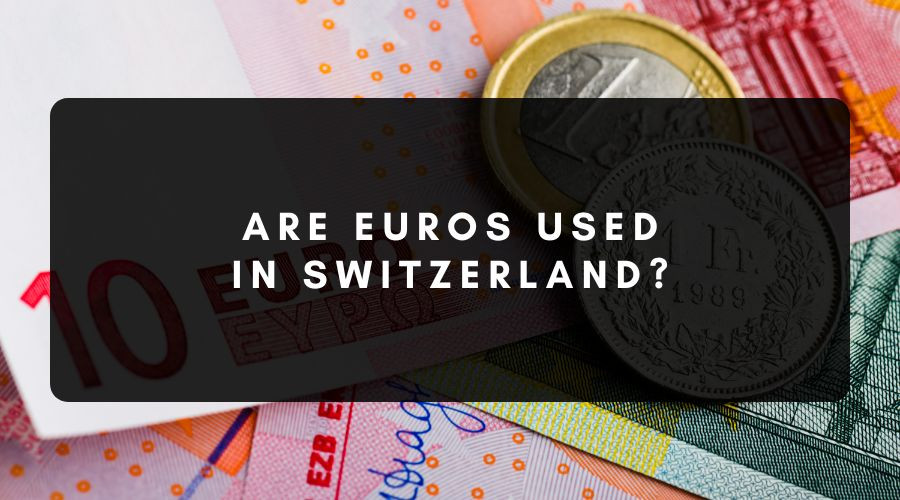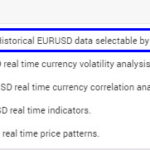Navigating currencies in Europe can be tricky for tourists and international businesses alike. The euro, with its convenience and widespread use, is a familiar friend to many. However, not every European nation has adopted it. So, when planning a trip or business venture in Switzerland, a key question arises: Does Switzerland Use The Euro?
The straightforward answer is no. Switzerland maintains its own currency, the Swiss franc (CHF). While some businesses, particularly in tourist hotspots, might accept euros, relying on this can lead to unfavorable exchange rates and change given in francs. Understanding Switzerland’s currency landscape is crucial for a smooth and financially savvy experience.
Can You Pay with Euros in Switzerland?
It’s common to encounter establishments in Switzerland, especially in tourist-centric areas, that accept euros. Major retailers, hotels, many restaurants, and businesses catering to visitors often accommodate euro payments. However, it’s important to be aware of the potential downsides.
Firstly, the exchange rate offered when paying in euros is usually not in your favor. Businesses set their own rates, which are typically less competitive than bank or exchange bureau rates. Secondly, even if you pay in euros, you will almost certainly receive your change in Swiss francs. This can lead to accumulating small amounts of local currency that you may not easily use elsewhere. For optimal financial management, especially outside of tourist zones, Swiss francs are generally necessary.
Understanding the Currency of Switzerland: The Swiss Franc (CHF)
Switzerland’s official currency is the Swiss franc (CHF). As a nation that remains outside the European Union, Switzerland retains full control over its monetary policy and currency. The Swiss National Bank (SNB) is responsible for determining currency rates and maintaining price stability. Historically, the Swiss government’s focus on low inflation has contributed to the Swiss franc becoming a strong and stable currency, often appreciating against major global currencies.
Swiss Franc Denominations: Banknotes and Coins
The Swiss franc is issued in both banknotes and coins, making everyday transactions convenient.
Swiss Banknotes
Swiss banknotes are available in six denominations, each distinct in color and design:
- 10 CHF
- 20 CHF
- 50 CHF
- 100 CHF
- 200 CHF
- 1000 CHF
Swiss Coins
Swiss coins come in both franc and rappen (the Swiss equivalent of cents) denominations:
- 5, 10, and 20 Rappen
- ½, 1, 2, and 5 Francs
 Swiss Franc Image
Swiss Franc Image
Swiss Francs in Business: Domestic vs. International Operations
While the Swiss franc is the primary currency for domestic business in Switzerland, its importance varies depending on a company’s focus. A 2024 Credit Suisse survey highlighted this distinction: the Swiss franc is the most crucial currency for sales in 54% of Swiss companies. However, this figure significantly shifts when considering different business models.
- For exporters, only 17% consider the Swiss franc as their most important currency, whereas 93% of importers prioritize it.
- A substantial 83% of domestically focused businesses rely on the CHF as their primary currency.
For international businesses and entrepreneurs looking at top banks in Switzerland for foreigners, multi-currency accounts are often a popular choice. These accounts streamline operations involving various currencies. However, it remains entirely feasible for foreign businesses to operate solely with CHF accounts.
Multi-Currency Solutions for International Businesses
For companies engaged in international trade, offering multi-currency solutions is strategically advantageous. It caters to both domestic and international market needs.
Implementing a multi-currency merchant services account, integrated with a global payment gateway, empowers businesses to accept payments in a wide array of currencies and payment methods. This adaptability enhances customer convenience and facilitates seamless transactions with partners and clients worldwide.
A Brief History of Swiss Currency
The Swiss franc’s history is rich and reflective of Switzerland’s unique path. Prior to 1850, currency in Switzerland was remarkably fragmented. Around 75 different entities minted coins, leading to an astonishing 860 currencies circulating within the country. This chaotic system prompted the Swiss Federal Government to take control, establishing the Swiss franc as the unified national currency in 1850.
Key milestones in the Swiss franc’s history include:
- 1865: Latin Monetary Union: Switzerland joined France, Italy, and Belgium in forming the Latin Monetary Union, adopting the silver standard.
- 1945: Bretton Woods System: Switzerland became part of the Bretton Woods system until the 1970s, pegging the Swiss franc’s value to the US dollar.
- Gold Standard: Switzerland later adopted the gold standard, maintaining it until 2000, demonstrating a long-term commitment to currency stability.
- 2003-2006: Euro Stability: The Swiss franc maintained relative stability against the euro during this period.
- 2015: Abandoning Euro Peg: The Swiss National Bank removed the franc’s peg to the euro in 2015. This decision caused significant market fluctuations but ultimately led to a surge in the Swiss franc’s value, reinforcing its safe-haven status.
Practical Currency Tips for Visitors to Switzerland
Managing currency effectively is essential for travelers in Switzerland, whether for a short visit or extended stay.
- Euros for Brief Transit: If you are briefly passing through Switzerland, using euros might be practical, especially if you already hold euros from travels in other European countries.
- Carry CHF Cash: It is advisable to have some Swiss francs in cash. Do not assume euro acceptance everywhere, especially in smaller establishments or rural areas. Having CHF ensures you can always make payments.
- Exchange Rate Awareness: Be mindful of exchange rates if you choose to exchange currency within Switzerland. Rates can vary considerably between locations.
- Card Acceptance: Credit and debit cards are widely accepted in Switzerland. However, remember that international transaction fees and exchange rates applied by your bank will apply.
- ATM Withdrawals: Withdrawing cash from ATMs using a debit card is generally more cost-effective than using a credit card for cash advances, minimizing fees.
Frequently Asked Questions About Swiss Currency
The topic of Swiss currency and its relationship with the euro often raises several questions. Here are some common queries addressed:
Why Hasn’t Switzerland Adopted the Euro?
Switzerland’s non-adoption of the euro is primarily due to its political stance outside the European Union. Despite bordering five EU countries that use the euro, the Swiss populace has consistently rejected EU membership in various referendums. This independence allows Switzerland to retain its own currency and monetary policy, reflecting a strong sense of national sovereignty.
How Easy Is It to Conduct Business with the EU from Switzerland?
Conducting business with the EU from Switzerland is remarkably straightforward. If you are considering starting a business in Switzerland, this ease of access is a significant advantage. Switzerland leverages bilateral treaties to access the Schengen Area, the EU common market, and research collaborations. This allows Switzerland to benefit from European integration in key sectors without compromising its political independence.
In 2022, Swiss exports to the EU reached CHF 90 billion, while imports from the EU amounted to CHF 85 billion. Robust systems and agreements are in place to facilitate seamless trade and business relationships between Switzerland and the EU.
Is Switzerland the Only European Country with Its Own Currency?
No, Switzerland is not alone in Europe in maintaining its own currency. Several European nations fall into two categories: EU members outside the Eurozone and non-EU countries.
Currently, 20 of the 27 EU member states use the euro. Countries like Bulgaria, Czech Republic, Denmark, Hungary, Poland, Romania, and Sweden, while EU members, have opted to retain their national currencies.
Furthermore, non-EU European countries such as Switzerland and the United Kingdom also continue to use their own distinct currencies.
Is the Swiss Franc Stronger Than the Euro?
Yes, the Swiss franc is indeed stronger than the euro and is recognized as one of the world’s strongest currencies. Switzerland has consistently maintained lower inflation rates compared to many other countries. This prudent economic management has led to the Swiss franc appreciating against currencies like the euro over time, further enhancing its strength. For more details, you can explore resources like this article from Swissinfo: Why is the Swiss franc appreciating so much?.
What Is the Best Currency to Bring to Switzerland?
While you can bring euros or U.S. dollars to Switzerland and exchange them, the most practical approach is to arrive with some Swiss francs or withdraw CHF from an ATM upon arrival using a debit card. Always check current exchange rates and any fees your bank might impose on foreign transactions to make informed decisions about currency exchange and withdrawals.
Strategic Currency Management in Switzerland
Switzerland offers a compelling environment for businesses, characterized by innovation, a skilled workforce, and a robust economy. Whether you are visiting briefly or establishing a long-term business presence, understanding Switzerland’s currency and payment methods is crucial.
While euros might suffice in major tourist centers, for extended stays or ventures beyond these areas, using Swiss francs is advisable. It ensures payment convenience, avoids unfavorable exchange rates, and facilitates a more integrated experience within the Swiss economy. Strategic currency management is a key component of successful engagement with Switzerland, whether for travel or business.

